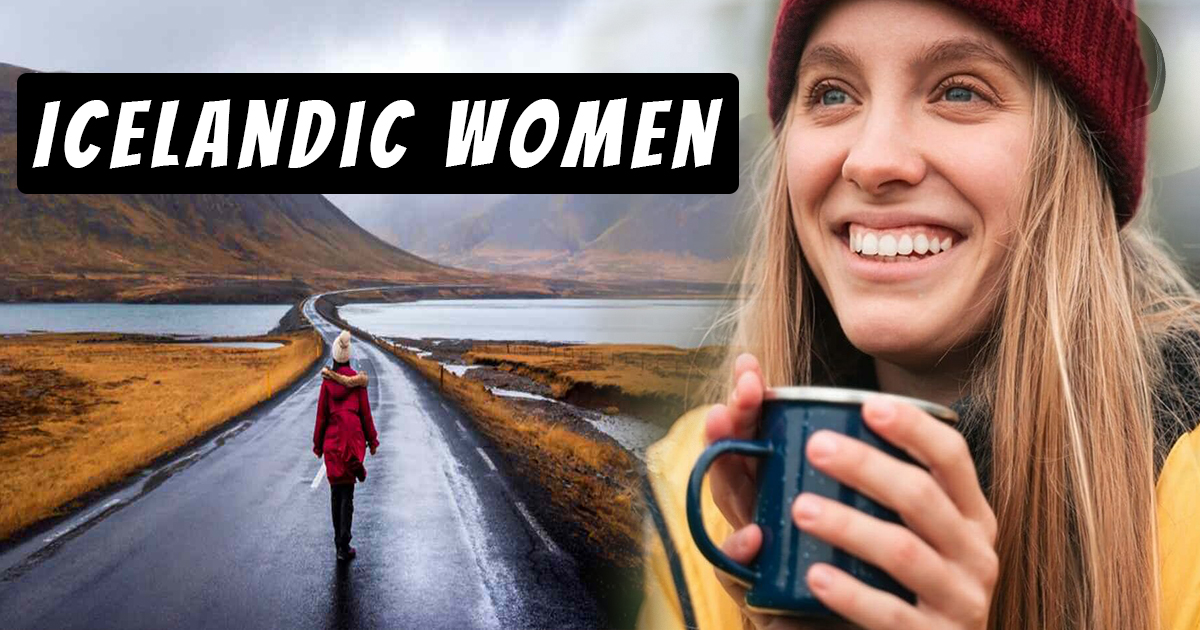Icelandic women are admired worldwide for their resilience, leadership, and cultural influence. Known for leading in areas like gender equality and political representation, they play a significant role in shaping Iceland’s progressive and inclusive society. Here are five amazing facts about Icelandic women that showcase their uniqueness and contributions to the world.
1. The Role of Women in Icelandic History and Society
Icelandic women have long been pillars of strength in their society. Dating back to the Viking era, women in Iceland were respected and afforded more rights compared to their counterparts in other parts of the world. Icelandic women could own land, inherit property, and even file for divorce, which was uncommon in many cultures at the time.
Fast forward to modern times, Icelandic women continue to be trailblazers. In 1975, they made history when 90% of the women in Iceland went on strike for a day, refusing to work or perform household duties. This bold move forced the nation to realize the indispensable role of women in society, ultimately leading to significant societal changes, including the election of the world’s first female president, Vigdís Finnbogadóttir.
2. Icelandic Women’s Contribution to Gender Equality
Iceland is often hailed as a leader in gender equality, and Icelandic women are largely responsible for this achievement. The 1975 Women’s Strike, where nearly all women in Iceland stepped away from their roles, was a defining moment. It highlighted the necessity of gender equality in both the workforce and the home. This strike laid the groundwork for policies such as the Equal Pay Act and Iceland’s groundbreaking equal pay certification. For more information on how to enjoy the incredible Icelandic experience, check out this Iceland in November travel guide.
This movement laid the foundation for the Equal Pay Act of 1961, which ensures that women in Iceland receive the same compensation as men for the same work. Additionally, Iceland was the first country in the world to legally require companies to prove they are paying men and women equally. Icelandic women continue to push boundaries, setting an example for the rest of the world in gender equality.
3. Icelandic Culture: A Feminist Perspective
Icelandic culture has a feminist core, emphasizing equality and inclusivity. From early on, Icelandic women have been viewed as equal partners in marriage, politics, and the workforce. The country has a unique approach to feminism, which is deeply woven into everyday life.
One of the ways Iceland celebrates its women is through the annual “Women’s Day Off” or Kvennafrídagurinn. On this day, women take a day off from work and family duties to highlight their contribution to society. This celebration strengthens Icelandic women’s sense of unity and empowerment, reinforcing the feminist perspective that defines much of Iceland’s culture.
4. How Icelandic Women Are Leading Global Gender Equality Movements
Icelandic women are not just making an impact in their home country—they are global leaders in the fight for gender equality. Through organizations like Women in Iceland, they have created international platforms that advocate for women’s rights around the world.
Moreover, Icelandic women have been at the forefront of campaigns and initiatives aimed at addressing the gender pay gap, women’s representation in leadership, and reproductive rights. Iceland’s success in these areas has become a model for other nations striving to achieve gender equality. Icelandic women often collaborate with international organizations to push for reforms that benefit women globally.
5. The Unique Icelandic Lifestyle: How Women Are Shaping It
Icelandic women are deeply connected to the land, nature, and culture of their country, shaping a unique lifestyle that balances professional success with personal fulfillment. Women in Iceland often engage in outdoor activities such as hiking, horseback riding, and skiing. This deep connection to nature plays a big role in maintaining both physical and mental health.
The country’s focus on work-life balance also allows Icelandic women to excel in their careers while maintaining strong family ties. Iceland offers one of the most generous parental leave policies in the world, with both mothers and fathers encouraged to take time off to care for their children. This equality in parental leave has fostered a culture where both genders share household responsibilities, making life easier for women in Iceland.
6. Famous Icelandic Women: Icons of Power and Influence
Several Icelandic women have made significant contributions in politics, arts, and other fields. These women serve as inspirations not only to Iceland but to the world. Some of the most influential Icelandic women include:
- Vigdís Finnbogadóttir: The world’s first democratically elected female president, a symbol of female empowerment.
- Björk: A world-renowned artist whose avant-garde music and unique style have captivated global audiences.
- Katrín Jakobsdóttir: Iceland’s current Prime Minister, a strong advocate for climate action, gender equality, and social justice.
These women have shattered glass ceilings and become symbols of strength, creativity, and leadership, showcasing the capabilities of Icelandic women across different spheres.
7. How Icelandic Traditions Empower Women
Icelandic traditions, many of which celebrate women, have played a crucial role in empowering Icelandic women over the centuries. From old Icelandic sagas featuring strong female characters to modern national holidays like Kvennafrídagurinn, these traditions highlight the value of women in Icelandic society.
The country also celebrates Þorrablót, an annual midwinter festival that honors the resilience of Icelanders. Women play a central role in these celebrations, often as hosts and organizers, further emphasizing their importance in cultural and social life.
8. Icelandic Women in Modern Politics and Leadership
The participation of women in politics and leadership is another area where Iceland excels. Women currently hold nearly half of the parliamentary seats in Iceland. In 1980, Iceland made history when Vigdís Finnbogadóttir was elected as the world’s first female president. Her election paved the way for future generations of women to aspire to leadership positions.
Today, Katrín Jakobsdóttir serves as the Prime Minister of Iceland, further demonstrating the strong political presence of women in Iceland. The country is known for encouraging women to take leadership roles in politics, business, and education, and this is reflected in its high rankings in global gender equality reports.
9. Why Iceland is the Best Place for Women’s Rights
Iceland has consistently ranked as the top country for women’s rights, and for good reason. The country’s government and societal structures actively support the advancement of women. Iceland’s laws promote equal pay, equal parental leave, and protection against gender-based violence. These policies ensure that Icelandic women have the freedom to pursue their dreams without facing the barriers women in other countries often encounter.
In addition to policies, Iceland’s social attitudes toward women’s rights are progressive. Gender equality is not seen as a women’s issue but as a societal one. This collective mindset ensures that women in Iceland continue to thrive in all aspects of life.
10. The Importance of Education for Icelandic Women
Education is a cornerstone of Icelandic society, and Icelandic women have long benefited from the country’s progressive educational policies. Iceland consistently ranks high in global education reports, with a near 100% literacy rate for both men and women. Icelandic women are encouraged from an early age to pursue higher education, which has resulted in a significant number of women holding advanced degrees and occupying leadership roles in academia, research, and various industries.
Icelandic universities promote gender equality in both curriculum and faculty representation. Women are not just learners—they are also educators and thought leaders, shaping the academic landscape. Programs aimed at increasing female participation in traditionally male-dominated fields such as science, technology, engineering, and mathematics (STEM) are common in Iceland, further empowering women to explore and excel in all career paths.
11. Icelandic Women in Sports: Champions of Strength and Determination
Sports have played an important role in the empowerment of Icelandic women, providing a platform to demonstrate physical strength, teamwork, and leadership. Icelandic women’s national teams, particularly in football (soccer) and handball, have earned international recognition for their skill and determination. These teams frequently compete on the world stage, with women athletes becoming national icons and role models for young girls in Iceland.
The success of Icelandic women in sports is attributed to a strong grassroots system that encourages participation from a young age. Sports organizations and the government provide equal resources and opportunities for both men and women, ensuring that female athletes can train and compete at the highest levels. This focus on gender equality in sports has made Iceland a leader in promoting female athleticism on a global scale.
12. Icelandic Women’s Impact on Environmental Sustainability
Icelandic women are also leading voices in the global environmental sustainability movement. As caretakers of a nation renowned for its breathtaking landscapes, Icelandic women play an active role in environmental preservation efforts. Many Icelandic women are at the forefront of initiatives related to renewable energy, conservation, and combating climate change.
The country itself is a global leader in green energy, with almost 100% of its electricity generated from renewable sources. Icelandic women in politics, such as Prime Minister Katrín Jakobsdóttir, have been instrumental in passing laws that prioritize sustainable development, climate action, and ecological preservation. Their leadership helps ensure that future generations can enjoy the unspoiled beauty of Iceland’s natural environment.
Conclusion: What Makes Icelandic Women Stand Out?
Icelandic women are known for their resilience, leadership, and advocacy for gender equality. From their contributions to global gender movements to their strong presence in politics and culture, Icelandic women continue to shape their nation and inspire the world. Their history, traditions, and lifestyle reflect a deep respect for equality, making Iceland a global leader in women’s rights.
Visit this blog for a memorable trip to Iceland in November.

Joseph Bush is a seasoned writer and researcher with over 7 years of experience covering a wide range of general topics, from lifestyle and technology to business and current events. He is dedicated to producing fact-checked, reader-friendly content that informs, engages, and empowers readers.
Throughout his career, Joseph has followed strict editorial guidelines, relied on reputable sources, and ensured every article meets the highest standards of accuracy and clarity. His expertise spans multiple fields, allowing him to explain complex topics in a way that’s easy to understand.
Passionate about continuous learning, Joseph stays updated on industry trends and best practices to deliver trustworthy, well-rounded insights. Readers can rely on his work for its credibility, depth, and real-world relevance.





This excellent phrase is necessary just by the way